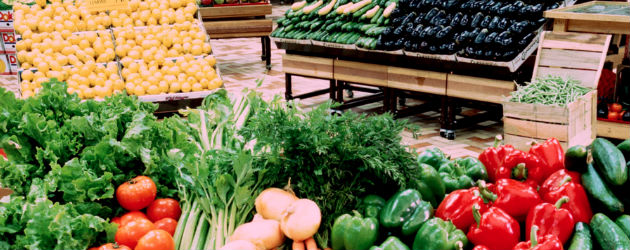Carrier Capacity and Temp Controls Pose Challenges in Trucking Produce
 Courtesy of The Packer by Tom Burfield: Finding adequate carrier capacity and maintaining proper in transittemperatures are the two primary challenges facing shippers of fresh produce, according to a survey conducted by RWI Transportation, Bloomington, Calif.
Courtesy of The Packer by Tom Burfield: Finding adequate carrier capacity and maintaining proper in transittemperatures are the two primary challenges facing shippers of fresh produce, according to a survey conducted by RWI Transportation, Bloomington, Calif.Nearly 9,400 transportation professionals were surveyed for the study, nearly 20% of whom were shippers of fresh fruits and vegetables.
In the survey, 76% of respondents indicated that they experienced issues with lack of available capacity during peak seasons.
Shippers have found three ways to increase available capacity, said Richard Bauer, RWI’s executive vice president and general manager.
As competition for carriers stiffens, some produce shippers are making efforts to become more attractive to carriers.
“Consistent loads with a carrier, especially on the shorter or regional hauls, is the best means of access to capacity,” Bauer said. Other means include sharing knowledge on shipping patterns, willingness to enter into long-term agreement and the ability to work as partners with carriers.
Being “carrier friendly” by paying on time or ensuring that drivers don’t have to wait to load or unload are other considerations.
“Capturing, understanding and using market data enables shippers to clearly outline their needs to increase available capacity and reduce costs with better lane density and reducing empty miles,” Bauer said.

Working consistently with a small number of core carriers can help increase opportunities to improve available capacity and rates, he said.
The second major challenge for produce shippers is controlling and monitoring the temperature of product in transit, the survey said.
According to the survey, 42% of shippers said the primary reason for rejecting shipments is for temperature variances that are too warm. Temperature variances being too cool was the second reason for rejecting shipments, and receiving a shipment with damaged cases was the third reason.
“Making sure to maintain the temperature appropriate for the product in the shipment is absolutely critical,” Bauer said. “Equally important is making sure the produce is compatible on mixed trucks.”
RWI Transportation is a member of the Castellini Group of Cos., a major distributor of fresh fruits and vegetables in the U.S.
Category: Cab, Trailer & Body New, General Update, Management









